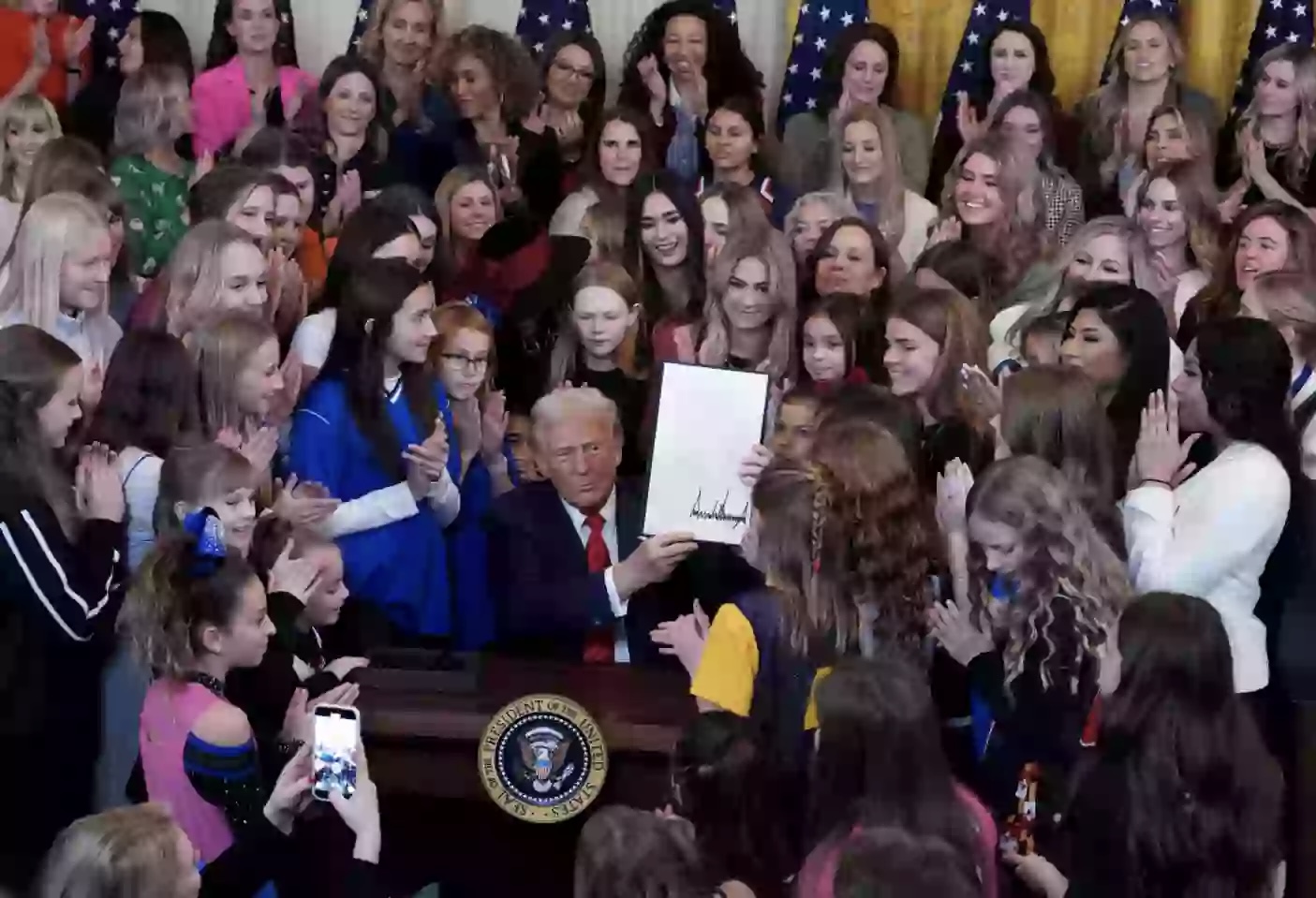Governors revealed the true details of the confrontation when President Trump asked Maine’s governor if she would comply with his new executive order on trans athletes
On February 21, 2025, a tense and highly charged discussion unfolded at the White House between President Donald Trump and a group of governors. The focal point of the meeting was an executive order proposed by Trump aimed at barring transgender women and girls from participating in women’s sports. The conversation reached its peak when President Trump singled out Governor Janet Mills of Maine, accusing her of being the only state leader unwilling to comply with the order. In a pointed exchange, Trump warned that failure to follow the directive could result in the loss of federal funding for Maine, including crucial funds for education.
According to reports from those in the room, President Trump directly confronted Governor Mills, asking, “Are you not going to comply with it?” Governor Mills responded with a firm, “I’m complying with state and federal laws.” Trump then issued a stern warning, stating, “We are federal law; you better do it. You better do it, because you’re not going to get federal funding… Your population doesn’t want men in women’s sports.” Governor Mills remained resolute, replying, “We’ll see you in court,” to which Trump responded with an air of dismissal, “Good. I’ll see you in court. I’ll look forward to that. That should be a real easy one. And enjoy your life after, governor, because I don’t think you’ll be in elected politics.”
The confrontation left several governors in the room uncomfortable, as they observed the exchange, which some described as “tense” and “unproductive.” Kevin Stitt, Governor of Oklahoma, remarked to Mail Online that the atmosphere in the room was “a little uncomfortable.” Colorado Governor Jared Polis, who was also present, expressed disappointment that the debate had not fostered a productive dialogue between the governors. He emphasized that it was important to disagree respectfully and work towards a common solution, yet the exchange did little to elevate the discourse.
Governor Stitt speculated that the exchange between Trump and Mills might have served political purposes for both sides, especially as it pertained to policies in major organizations like the NCAA and the Olympics. As discussions continued, some governors expressed that they were unsure about the legal context behind the disagreement but agreed it highlighted divisions over transgender sports policies and federal intervention.
The executive order, which Trump was pushing for, sought to withdraw federal funding from states that allow transgender girls to compete in women’s sports. In Maine, the state’s Principal’s Association had declared that transgender students would continue to participate in sports, citing protections under the Maine Human Rights Act. President Trump had reportedly threatened that Maine would lose federal funds “until they clean that up.”
Governor Mills responded by vowing legal action if the president followed through with the funding cuts. She issued a statement saying her administration, along with the state attorney general, would take all necessary legal measures to restore federal funding for Maine’s schools and ensure students’ access to educational opportunities. Governor Mills also framed the conflict as a broader issue of presidential power, asserting that no president could unilaterally compel states to follow personal policies that conflict with established laws.
In the aftermath of the heated exchange, reactions from governors were mixed. While some expressed frustration over the lack of constructive dialogue, others noted that the incident underscored the deep divisions on transgender policies and federal intervention. Governor Polis highlighted that the disagreement, though uncomfortable, was indicative of the polarized nature of current national politics.
The broader implications of the White House confrontation also prompted reflection within the National Governors Association (NGA). Leaders from the NGA emphasized that disagreements must be handled in a manner that fosters respectful dialogue and collaboration, rather than personal threats or ultimatums. Several members stressed that although the confrontation may have been uncomfortable, it illuminated significant issues that must be addressed in a more constructive manner.
The clash between President Trump and Governor Mills is just one example of the ongoing and contentious national debate over transgender rights in sports. The executive order and the legal battles that will follow are set to influence the future of transgender participation in athletics. The situation has sparked concerns among civil rights groups, who argue that the executive order could lead to discrimination and undermine the rights of transgender students. Supporters of the order, however, assert that it is necessary to preserve fairness in women’s sports.
This heated exchange between Trump and Mills highlights the broader challenge of balancing state sovereignty with federal mandates, especially in the current politically charged climate. It underscores the contentious nature of discussions surrounding gender, fairness, and the role of government in regulating competitive sports. As legal battles loom, this conflict is likely to shape the ongoing national conversation about transgender rights and government intervention in local and state policies.
